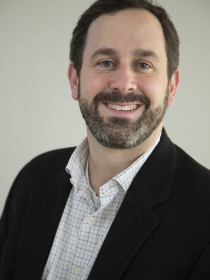Connect with David
About David
Kirk’s research is focused on three inter-related themes: first, the legitimacy of the law and the effects of illegitimacy on crime and the willingness of residents to cooperate with the police; second, the effects of criminal sanctions on future life chances and social inequality; and third, prisoner reentry and the consequences of housing and parole policies for offender reintegration.
Contributions
How Tough Policing in Immigrant Communities Can Backfire
Key Findings Brief,
In the News
David Kirk quoted on drunk driving research by Fredrick Kunkle, "Is Uber Reducing Drunk Driving? New Study Says No." Washington Post, July 27, 2016.
David Kirk's research on Hurricane Katrina and prisoner reentry discussed by , "'Prisonized' neighborhoods make ex-cons more likely to return to the slammer," ScienceMag, May 22, 2015.
David Kirk's research on the geographic concentration of returning prisoners discussed by , "When Parolees Spread Out, Recidivism Goes Down," The Atlantic, May 19, 2015.
David Kirk's research on prisoner reentry discussed by , "Some Parole Requirements Could Be Increasing The Crime Rate," NPR, July 8, 2014.
"We are Rolling Back Civil Rights When It Comes to Employment Decisions," David Kirk, Austin American-Statesman, April 8, 2014.
David Kirk's research on prisoner reentry and Hurricane Katrina discussed by , "Removing Roadblocks to Rehabilitation," New York Times, January 21, 2011.
Publications
"Juvenile Arrest and Collateral Educational Damage in the Transition to Adulthood" (with ). Sociology of Education 86, no. 1 (2013): 36-62.
Presents evidence that a criminal arrest record has a substantively large and robust impact on dropping out of high school among public school students even after accounting for all the leading predictors of dropout. Also reveals a significant gap in four-year college enrollment between arrested and otherwise similar youth without a criminal record.
"A Natural Experiment of the Consequences of Concentrating Former Prisoners in the Same Neighborhoods" Proceedings of the National Academy of Sciences 112, no. 22 (2015): 6943-6948.
Argues that concentrating former prisoners in the same neighborhoods leads to significantly higher recidivism rates than if ex-prisoners were more dispersed across neighborhoods.
"The Paradox of Law Enforcement in Immigrant Communities: Does Tough Immigration Enforcement Undermine Public Safety?" (with ). The Annals of the American Academy of Political and Social Science 641 (2012): 79-89.
Investigates the consequences of harsh immigration reforms on the willingness of residents to cooperate with the police and ultimately the ability of the police to detect and solve crimes.
"Cultural Mechanisms and the Persistence of Neighborhood Violence" (with ). American Journal of Sociology 116, no. 4 (2011): 1190-1233.
Argues that the persistence of violence in Chicago neighborhoods despite gentrification and declines in poverty can be attributed to neighborhood culture, particularly cynical views of the police that lead residents to conclude that the police are illegitimate, unresponsive, and ill-equipped to ensure public safety.
"A Natural Experiment on Residential Change and Recidivism: Lessons from Hurricane Katrina" American Sociological Review 74, no. 3 (2009): 484-505.
Utilizes Hurricane Katrina as a natural experiment to examine the implications of residential change for the likelihood of desisting from criminal behavior. Argues that offenders who moved away from home neighborhoods were much less likely to be reincarcerated in the future. Discusses how residential change can provide ex-offenders a fresh start, by severing ties to peers and social situations that contributed to their prior criminal behavior.
